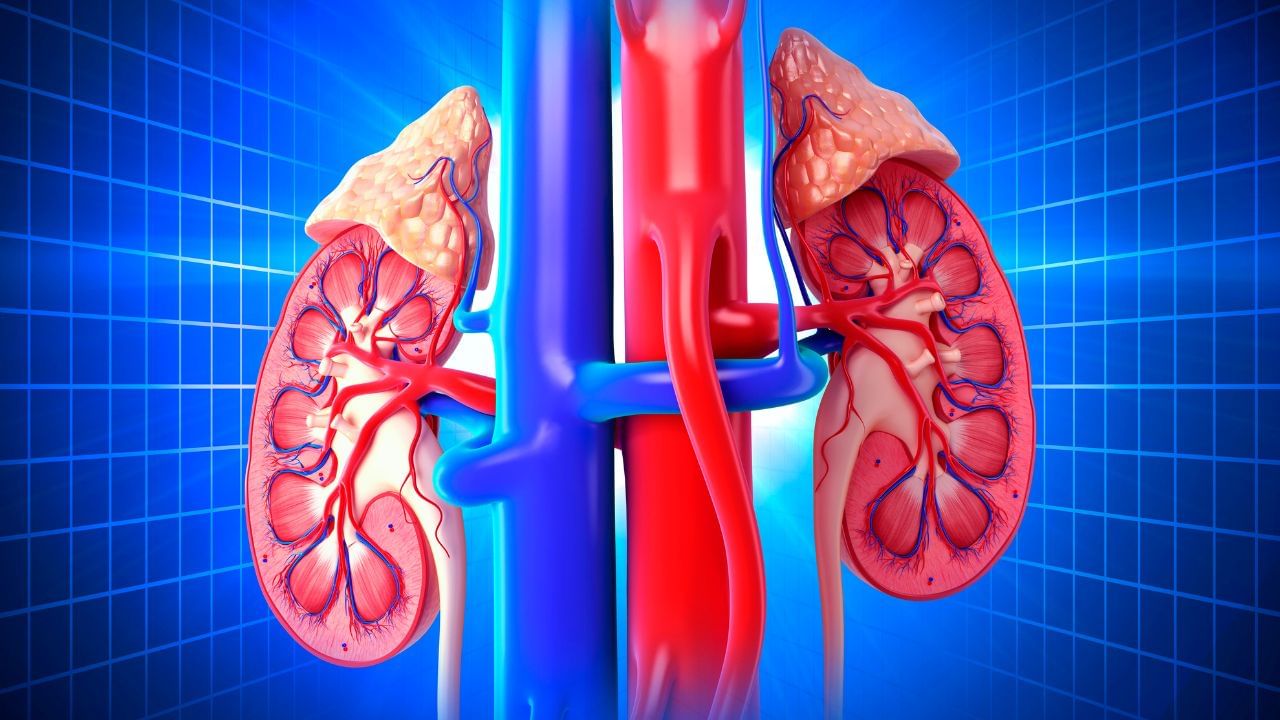due to kidney stones Image Credit source: Getty Images
Kidney stones mean that the minerals deposited inside the kidney stick to each other and form small or large hard solid crystals. These crystals are small initially, but over time larger pieces form into stones. When these pieces move forward in the urinary tract, problems like severe pain, burning sensation during urination and blockage occur. There are four main types of kidney stones, calcium stones, uric acid stones, struvite stones and cystine stones. The reason for formation of each type of stone, diet and body process are different. In such a situation, if timely identification and treatment is not done, these stones can damage the kidneys and can also return again and again.
The most common symptom of kidney stone is a sharp stabbing pain that starts suddenly in the waist, arm or lower abdomen and keeps increasing and decreasing. Apart from this, symptoms like burning sensation during urination, feeling of frequent urge to urinate, blood in urine, smelly urine, vomiting, nausea and restlessness can also be seen. The pain may feel more severe at night or in the morning. If the stone becomes large, it can block the urinary tract, due to which urination can stop and the infection can increase. If fever and chills start, it can be a sign of infection and without doctor’s examination this condition can become dangerous.
What are the three main causes of kidney stone formation?
Dr. Himanshu Verma in the Department of Nephrology at Safdarjung Hospital It is said that the three main reasons include drinking less water, high salt diet and excessive amount of minerals like calcium-oxalate in the body. Drinking less water makes urine thick and this thickness helps in accumulation of minerals. On the other hand, eating too much salt increases sodium in the body, which causes the kidneys to excrete more calcium and in the future, the chances of calcium crystal formation increases. The third reason is that in some people, the metabolic process of the body is such that oxalate or uric acid is produced in excess and this can accumulate and take the form of stones.
Other causes include family history, obesity, eating too much sweet or processed food, excess tea and coffee, excess sugar, low potassium diet, high protein diet, frequent urination and long-term use of certain medications. The risk also increases in patients with diabetes, high BP and high uric acid.
How to protect?
Drink 8 to 9 glasses of water daily.
Reduce the amount of salt and packaged food.
Take oxalate-rich foods in moderation.
Maintain correct calcium intake as per doctor’s advice.
Urinate on time, do not stop.
If there is a problem with uric acid or mineral balance in the body, then keep getting tested from time to time.
